Here are the answers to
the quiz in a previous post.
1.
Olives - they'll be green in October, turning black by December.
1.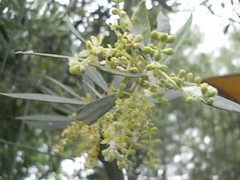
2.
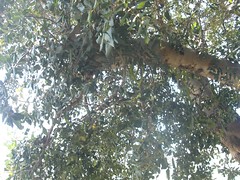
2.
Carob - this is where your chocolate substitute comes from. It is used as pig feed in Greece, but it was once the only 'chocolate' a Greek child would have tasted if it were born in a village (my father told me this one). It is still (but alas, not frequently any longer) made into a refreshing carob drink,
haroupia, in some villages in Crete.
3.
Figs3.
4.

4.
Camomile5.
Cactus figs (prickly pears): they'll be orange in September.
5.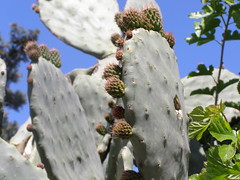
6.

6.
Mustard greens - the leaves are eaten when fresh and tender
7.
Pomegranate7.
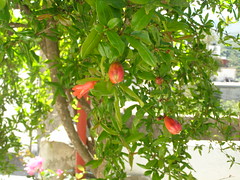
8.
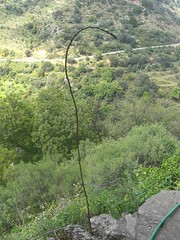
8.
Wild asparagus9.
Oranges will start growing soon on this tree.
9.
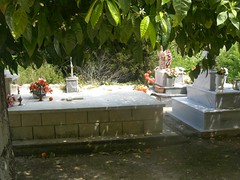 10.
10.
10.
Mulberries - this is a mulberry tree (μουρνιά - mournia), commonly grown for its foliage (it gives shade in the winter, and the leaves are eaten by sheep and goats) rather than its fruit, which, when ripe, is either white (like this species) or purple.
11.
Grapes -
grape must, wine, raki and petimezi can all be made from this fruit.
11.
 12.
12.
12.
Avocado - a relative newcomer to Crete, it grows well in our climate and the fruits are profitably marketable; they are mainly exported.
Thanks to all for taking part (on both my blogs). The winner of
this book was chosen randomly, regardless of whether they were able to answer all the questions correctly. I wrote each name on a piece of paper, scrunched it into a ball, placed it in a bowl, and let my son dip his hand and pick one. He chose the piece of paper with the name
Allison Parker.

Congratulations! Now email me your address (mverivaki at hotmail dot com) and I'll send you the book.
©All Rights Reserved/Organically cooked. No part of this blog may be reproduced and/or copied by any means without prior consent from Maria Verivaki.

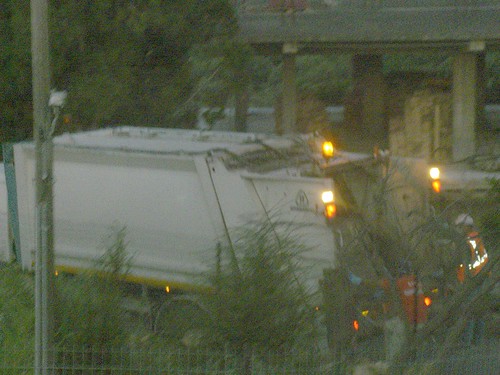



 2.
2.
 4.
4.
 6.
6.
 8.
8.
 10.
10.
 12.
12.
 Congratulations! Now email me your address (mverivaki at hotmail dot com) and I'll send you the book.
Congratulations! Now email me your address (mverivaki at hotmail dot com) and I'll send you the book.

